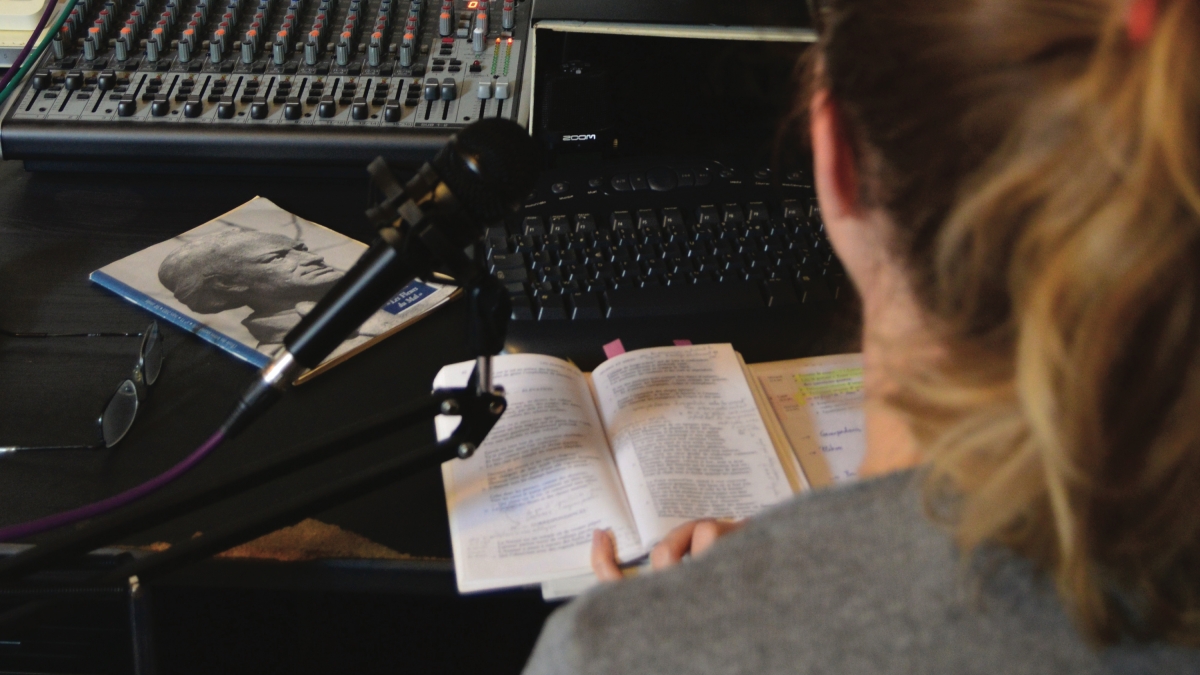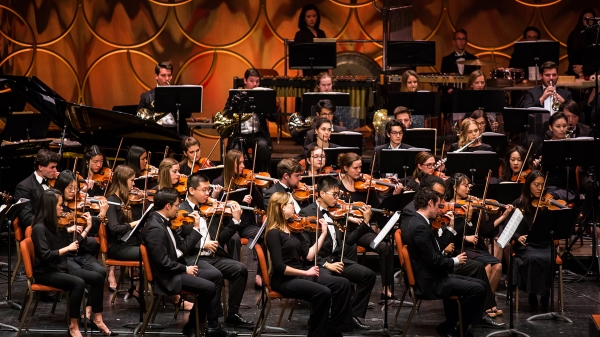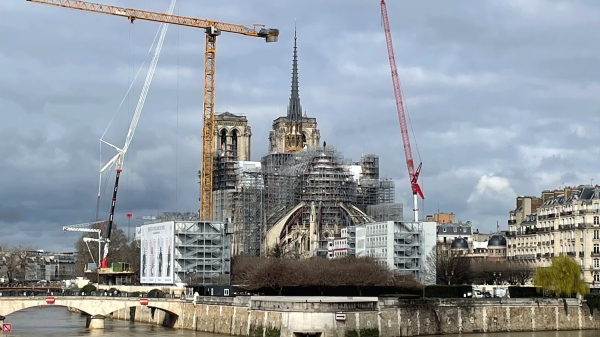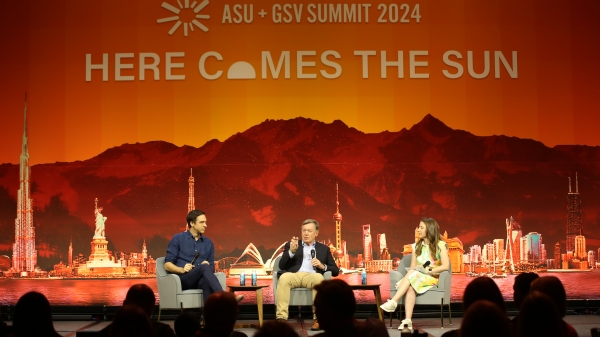ASU researcher is a finalist for Religion News Association Award
Center for the Study of Religion and Conflict postdoctoral scholar Heather Mellquist Lehto is up for a religion reporting excellence honor

Heather Mellquist Lehto, a postdoctoral scholar at the Center for the Study of Religion and Conflict, earned national recognition for a three-part series documenting a range of perspectives, experiences and commitments among an increasingly diverse and rapidly growing segment of evangelical Christians.
Mellquist Lehto and co-reporter Matthew Bell were selected as finalists for the Religion News Association Awards for Religion Reporting Excellence. Their series on evangelical Christianity aired on Public Radio International’s "The World," an hourlong news program that reaches 3 million listeners on more than 300 public radio stations.
With evangelicals taking center stage during the 2020 Republican National Convention, Mellquist Lehto discussed the relevance of this series.
“There's an assumption — in media portrayals or broader public portrayals — that evangelicalism is tacitly white evangelicalism, ignoring the fact that a quarter of evangelicals in America are people of color who align very differently, socially and politically,” Mellquist Lehto said. “And so I really liked having the opportunity to present these voices — and not just present them as voices that are exceptional to the mainstream — in order to communicate that our national conversations about evangelicalism are often not reflective of what evangelicalism really looks like.”
Overall the series features evangelicals across the country who present aspects of evangelicalism in the United States that are rarely a part of the public narrative about evangelical communities as a voting bloc.
The first segment, “The Evangelical Church is Becoming More Diverse,” highlights two pastors at a large Latino-led megachurch in Orlando, Florida. The second, “The Changing Face of Evangelical Christianity,” presents a story of a radically generous church in San Francisco without a church building or paid clergy. The third, “U.S. Evangelicals Are Not a Monolith,” features a married couple from Los Angeles — a Christian rapper and a Latina scholar — who are engaging in difficult conversations with their fellow Christians.
Mellquist Lehto sees this series as part of her larger scholarly projects that “complicate certain narratives about ‘Christian America’ and about Christianity in America,” she said. “At the very least, what I hoped to accomplish was to make sure that we have a more accurate understanding of what these communities really look like before we do broader political theorizing about evangelical support for Trump or people of color walking away from the term ‘evangelicalism’ because of the way it has become so associated with conservative politics,” Mellquist Lehto explained.
Mellquist Lehto is a researcher with Beyond Secularization: A New Approach to the Study of Religion, Science and Technology in Public Life, an interdisciplinary project funded by Templeton Religion Trust. The project takes as an object of social inquiry the interlacing of science, technology and religion in public life in order to reassess — and reimagine — dominant ideas of progress that historically have recognized science and technology as forces that drive people away from religion.
Mellquist Lehto explores the coordination of technological and religious innovation in some of the world’s first and largest multisite churches — single churches that meet at multiple locations, often through the use of audio, projection, and even hologram technologies. Nearly all megachurches in the world have adopted this franchise-like form in the last decade, but this fairly new organizational practice originated in South Korea in the 1970s.
Mellquist Lehto spent two years doing multisited ethnographic research in Seoul, South Korea, and Los Angeles. Her current work explores Christian efforts to create and maintain what she calls “holy infrastructures” through one’s body, actions and the technologies of one’s practice.
“Multisited churches are these translocal communities that cut across the state, political, and cultural boundaries that often define research on religion,” Mellquist Lehto said.
“How might our thinking about evangelical Christianity and about multisited churches be reframed? How does participating in transnational churches affect how people think about geopolitics, economics and what makes a religious community — either in Korea or in their ‘satellite’ locations in Los Angeles or here in Phoenix? These kinds of questions continue to animate and remain at the center of my work, inspiring me to explore new methods and new forms of storytelling.”
“I always appreciated people who are doing more audiovisual things, but I was a little intimidated by it. Working with Matthew and working with sound in this particular way, I suddenly realized how much more useful my recordings could be.
“If instead of writing down what somebody said, if I could play you a clip of their voice saying these things, or if I could play a clip of the ambient sound in one of these churches as opposed to using just my words to describe it, that would be a different form of engagement. Because you connect to the story in a different way. For me, this project and this recognition has created a sort of pivot toward being more intentional about that.”
Story by Jennifer Clifton
More Arts, humanities and education

ASU Symphony Orchestra welcomes visionary conductor Jonathan Taylor Rush
Guest conductor Jonathan Taylor Rush will join Arizona State University’s Jason Caslor, director of bands, to lead the ASU…

Chemistry classes are key to art student's success
Amanda Barnette has a passion for art preservation. That means that, for the past four years, the Arizona State University…

ASU+GSV Summit tackles big questions about AI, technology, education
Editor's note: We'll be updating this story daily throughout the summit. The annual ASU+GSV Summit kicked off in San Diego on…